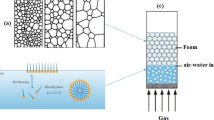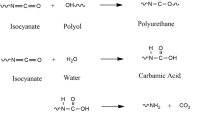Abstract
Low-temperature properties need improvement before vegetable oils can receive wider recognition as biodegradable lubricants. Effects of dilution with major biodegradable fluids, namely poly alpha olefin (PAO 2), diisodecyl adipate (DIDA), and oleates, as well as impact of pour point depressant (PPD), were investigated. Since solidification of mixed unsaturated triacylglycerols is a complex thermodynamic process, the study was limited to pour point determinations. Vegetable oils demonstrated higher pour points with increased saturation and molecular weight. Cis unsaturation and hydroxy groups favored lower pour points. Dilution with oleates appeared less effective than dilution with PAO 2 and DIDA. Addition of 1% PPD (w/w) depressed pour points down to −33°C for canola and −24°C for high-oleic sunflower oils. However, neither higher amounts of PPD nor incorporation of diluent produced further depression. Depression of pour points was not proportional to the amount of diluent and ceased with further dilution. Low-temperature performance of vegetable oils limits their prospect as biodegradable lubricants, but well-balanced usage of PPD and diluents can deliver some improvements.
Similar content being viewed by others
References
Padavich, R.A., and L. Honary, A Market Research and Analysis Report on Vegetable-Based Industrial Lubricants, in Society of Automotive Engineers Technical Paper 952077, 1995, pp. 13–22.
Douglas, P.J., An Environmental Case for Synthetic Lubricants, Lubr. Eng. 48:696–700 (1992).
Randles, S.J., and M. Wright, Environmentally Considerate Ester Lubricants for Automotive and Engineering Industries, J. Synth. Lubr. 9:145–161 (1992).
Battersby, N.S., S.E. Pack, and R.J. Watkinson, A Correlation Between the Biodegradability of Oil Products in the CEC L-33-T-82 and Modified Sturm Tests, Chemosphere 24:1989–2000 (1992).
Becker, R., and A. Knorr, An Evaluation of Antioxidants for Vegetable Oils at Elevated Temperatures, Lubr. Sci. 8:95–117 (1996).
Gapinski, R.E., I.E. Joseph, and B.D. Layzell, A Vegetable Oil Based Tractor Lubricant, in SAE Tech. Pap. 941758, 1994, pp. 1–9.
Asadauskas, S., J.M. Perez, and J.L. Duda, Oxidative Stability and Antiwear Properties of High Oleic Vegetable Oils, Lubr. Eng. 52:877–882 (1996).
Asadauskas, S., J.M. Perez, and J.L. Duda, Lubrication Properties of Castor Oil—Potential Basestock for Biodegradable Lubricants, Ibid.35–40 (1997).
Ohkawa, S., A. Konishi, H. Hatano, K. Ishihama, K. Tanaka, and M. Iwamura, Oxidation and Corrosion Characteristics of Vegetable-base Biodegradable Hydraulic Oils, Society of Automotive Engineers Technical Paper 951038, 1995, pp. 55–63.
Rhodes, B.N., W. Mammel, P. Landis, and F.L. Erickson, Water Rejection of Vegetable Oil Base Stocks for Tractor/Hydraulic Fluids, Society of Automotive Engineers Technical Paper 952073, 1995, pp. 1–4.
Kassfeldt, E., and D. Goran, Environmentally Adapted Hydraulic Oils, Wear 207:41–45 (1997).
Rhee, I.S., C. Velez, and K. Bernewitz, Evaluation of Environmentally Acceptable Hydraulic Fluids, TARDEC Tech. Report 13640, U.S. Army Tank-Automotive Command Research, Development and Engineering Center, 1995, Warren, MI, pp. 1–15.
Shubkin, R.L., Polyalphaolephins, in Synthetic Lubricants and High Performance Functional Fluids, edited by R.L. Shubkin, Marcel Dekker, NY, 1993, pp. 9–11.
Asadauskas, S., J.M. Perez, and J.L. Duda, Suitability of Basestocks for Biodegradable Lubricants, in ACS Symposia Preprints “Worldwide Perspectives on the Manufacture, Characterization and Applications of Lubricant Base Oils”, 42:246–249 (1997).
Larsson, K., Physical Properties: Structural and Physical Characteristics, in The Lipid Handbook, edited by F.D. Gunstone, J.L. Harwood, and F.B. Padley, Chapman & Hall, NY, 1994, pp. 449–457.
Hagemann, J.W., Thermal Behavior and Polymorphism of Acylglycerols, in Crystallization and Polymorphism of Fats and Fatty Acids, edited by N. Garti and K. Sato, Marcel Dekker, NY, 1988, pp. 9–95.
de Jong, S., T.C. van Soest, and M.A. van Schaick, Crystal Structures and Melting Points of Unsaturated Triacylglycerols in the Beta Phase, J. Am. Oil Chem. Soc. 68:371–378 (1991).
D’Souza, V., L. de Man, and J.M. de Man, Polymorphic Behavior of High Melting Glycerides from Hydrogenated Canola Oil, Ibid.907–911 (1991).
Standard Test Method for Pour Point of Petroleum Products D 97, ASTM Standards, American Society for Testing Materials, Philadelphia, Vol. 05.02, 1991, pp. 57–64.
Acryloid EF-100 Series Pour Point Depressants, Rohm and Haas Company, Philadelphia, 1995, pp. 1–8.
Dunn, R.O., and M.O. Bagby, Low-Temperature Properties of Triglyceride-Based Diesel Fuels: Transesterified Methyl Esters and Petroleum Middle Distillate/Ester Blends, J. Am. Oil Chem. Soc. 72:895–904 (1995).
Carpenter, J.F., Biodegradability and Toxicity of Polyalphaolefin Base Stocks, J. Synth. Lubr. 12:13–20 (1995).
Carpenter, J.F., Biodegradability of Polyalphaolefin Basestocks, Lubr. Eng. 50:359–362 (1994).
van der Waal, G., and D. Kenbeek, Testing, Application and Future Developments of Environmentally Friendly Ester Base Fluids, J. Synth. Lubr. 10:67–83 (1993).
Author information
Authors and Affiliations
Corresponding author
About this article
Cite this article
Asadauskas, S., Erhan, S.Z. Depression of pour points of vegetable oils by blending with diluents used for biodegradable lubricants. J Amer Oil Chem Soc 76, 313–316 (1999). https://doi.org/10.1007/s11746-999-0237-6
Received:
Accepted:
Issue Date:
DOI: https://doi.org/10.1007/s11746-999-0237-6




